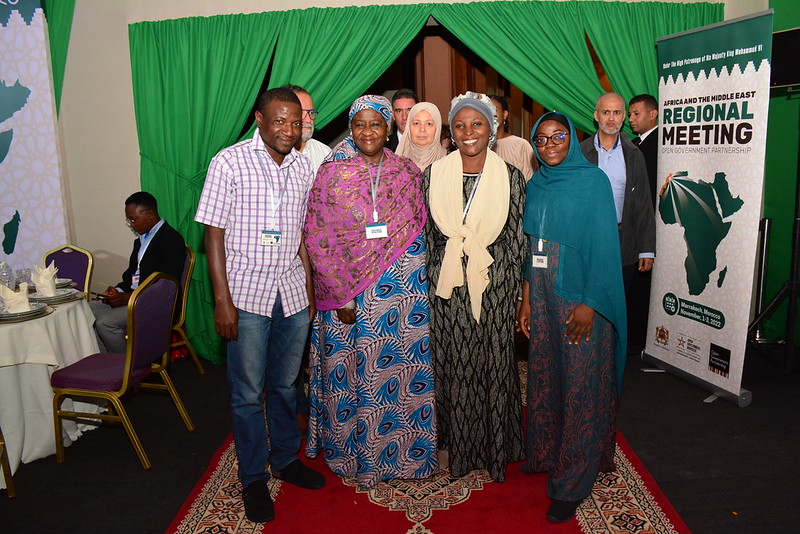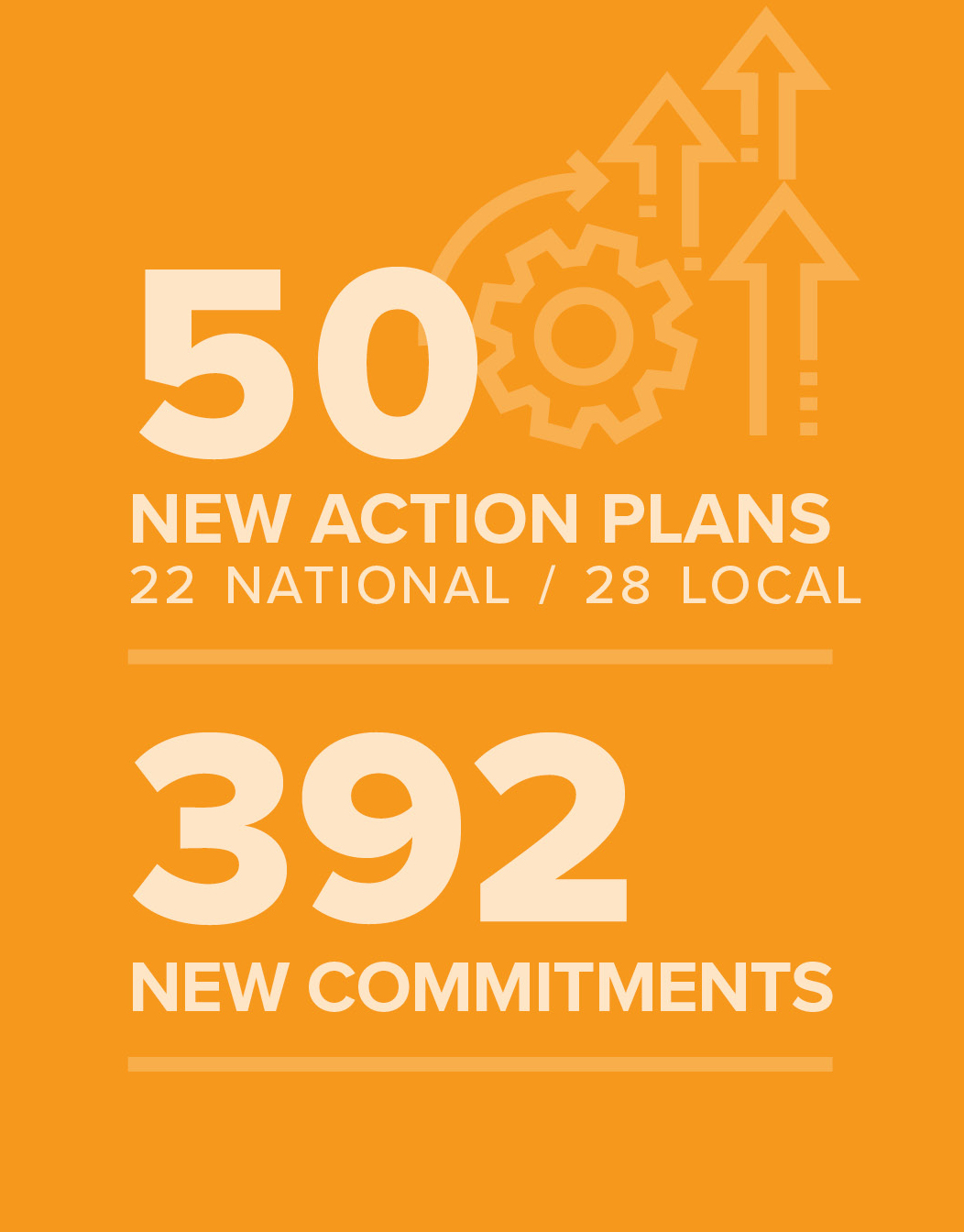Reflecting and Building for the Future
Show linksFor the first time since the COVID-19 pandemic, 2022 was an opportunity for the Open Government Partnership (OGP) community to come together across several regions to reflect and build a future for our Partnership. Reformers from the community convened at three regional events across the world to exchange ideas, build on thematic policy successes, and energize open government work. At the same time, OGP conducted the most ambitious and consultative strategy development process in its history, resulting in a bold new vision for the Partnership in the next five years.
2022 was a challenging year in many ways, as countries continued to emerge from the effects of the COVID-19 pandemic and with the impacts of Russia’s expanded invasion of Ukraine. Yet, despite a decline in democracy and in citizens’ trust in government in the broader environment, we are also seeing glimmers of hope. Democracy has shown its resilience in the face of authoritarianism and populism, as evidenced from the last few years, when democracies – and more transparent governments in particular – did better in addressing the COVID-19 pandemic. Open government reformers continued to lead the charge in 2022. National and local OGP members made 392 new commitments across 50 different national and local action plans. The OGP Support Unit thanks the OGP community for continuing to build the open government movement and coming together at this key juncture in our Partnership’s history. We look forward to building OGP’s next chapter together.
Advancing Open Government Domestically and
Regionally
In the past year, countries demonstrated strong OGP processes, showing an upward trajectory in the quality of dialogue in co-creation processes. The latest round of action plans saw the highest rate yet of government responses to civil society about how their inputs were or were not considered during co-creation. For the first time, more than two-thirds of OGP governments provided this response to civil society. In addition, OGP countries continue to establish spaces for dialogue during co-creation. Most OGP countries (about six in seven) have now established a space for government and civil society to discuss the OGP action plan process. These two metrics are important indicators of the growing strength of the OGP process in bringing together civil society and government stakeholders for reforms. Engaging civil society organizations (CSOs) throughout the OGP process is a strong predictor of ambitious commitments, better implementation, and early results.
OGP held three regional meetings in 2022, bringing together reformers in the Americas, in Europe, and in Africa and the Middle East to share progress, lessons, and challenges to build deeper regional collaboration.
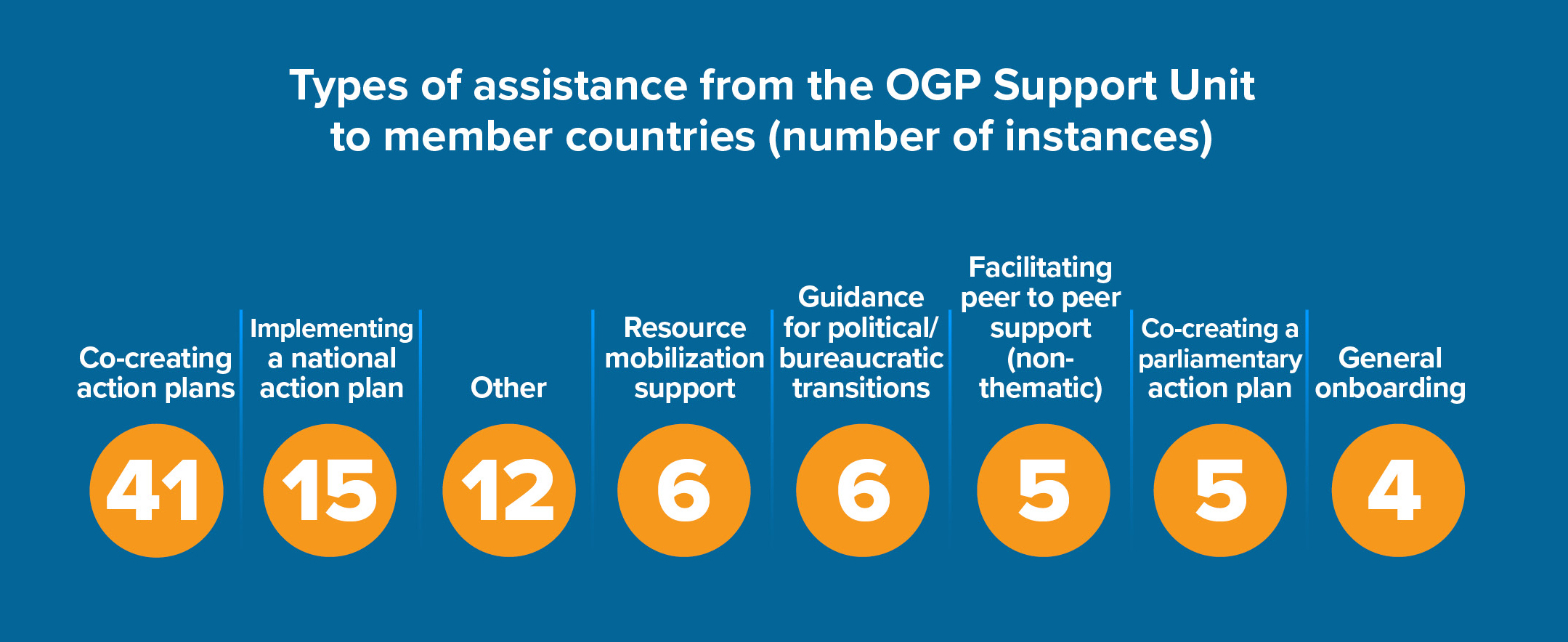
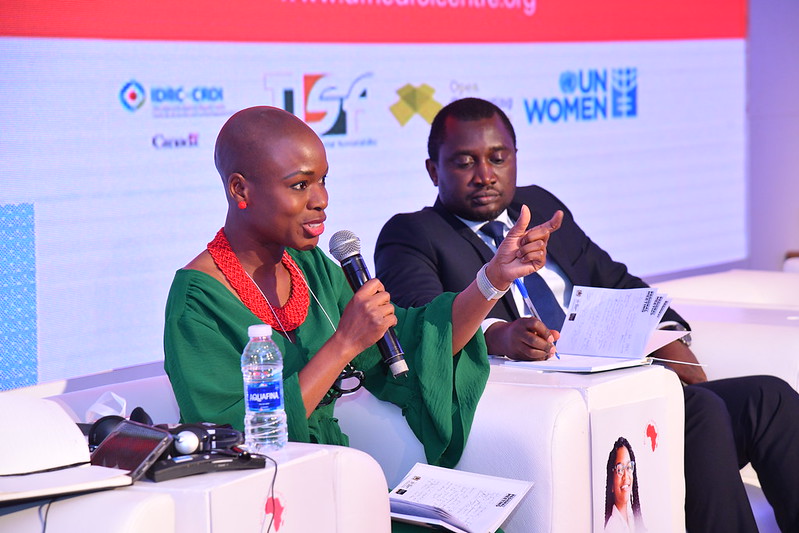
Progress in Key Thematic Policy Areas
Protecting Civic Space and Democratic Freedoms
In prior years, despite repeated discussions of civic space issues, few OGP countries had made commitments on civic space-related issues. But in the last year, an precedented number in both absolute and relative terms made commitments to protect and promote freedom of expression, freedom of assembly, and freedom of association. 10 national members and 1 local member made a total of 12 commitments involving civic space in 2022. Nearly half (45%) of national members with a 2022 action plan made a commitment related to civic space, a notable increase from previous years (which averaged at between 5 and 10%).
Tackling Corruption
OGP’s research shows that anti-corruption commitments are among the most ambitious and most likely to generate strong early results. These areas include whistleblowing, extractive industries, audits, and open contracting. In 2022, 20 national members and 14 local members made a total of 98 anti-corruption commitments. There has been a steady growth in commitments on beneficial ownership transparency over the past few years, and notably, half of 2022 NAPs included a beneficial ownership commitment, which is the highest single-year adoption rate in OGP.
Promoting Inclusion for Underrepresented Voices
More OGP members than ever before are working on inclusive decision-making, disaggregated data, and access to justice for all. More than 80% of current action plans have at least one inclusion-related commitment, compared to 15% a decade ago. In 2022, this reached an all-time high with 18 national members and 16 local members making a total of 81 inclusion-related commitments. Within all 2022 action plans (both national and local), nearly 40 percent of referenced gender in a commitment.

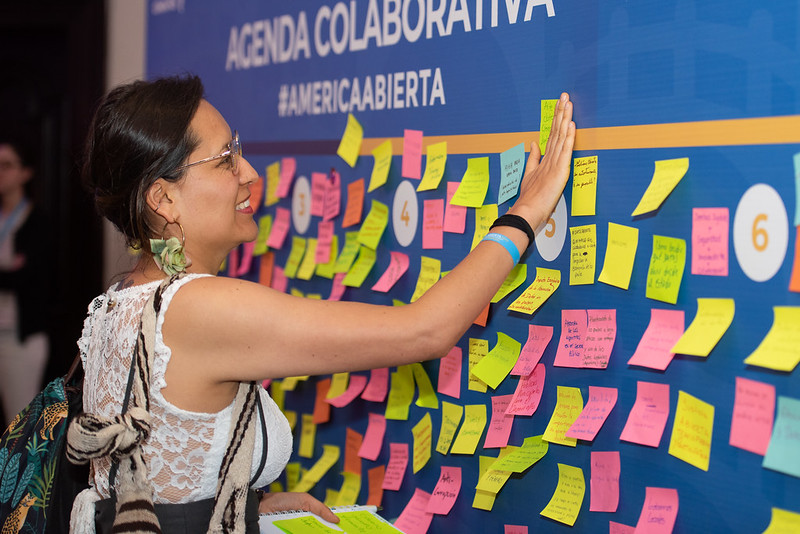
Co-Creating a New Strategy for the Partnership
In May 2022, OGP called on its community of reformers to step up and actively participate in developing a new strategy of OGP for 2023 -2028. The strategy has been developed through the most comprehensive community engagement process in the Partnership’s history, involving thousands of people from across the world through a variety of channels—online consultation platforms, virtual and in-person meetings, and OGP regional events.
The result is a renewed vision for OGP as a more political, values-based partnership rooted in specific actions, innovations, and ideas for more open and democratic governments that meet citizens’ expectations. The new OGP strategy will be launched in May 2023.
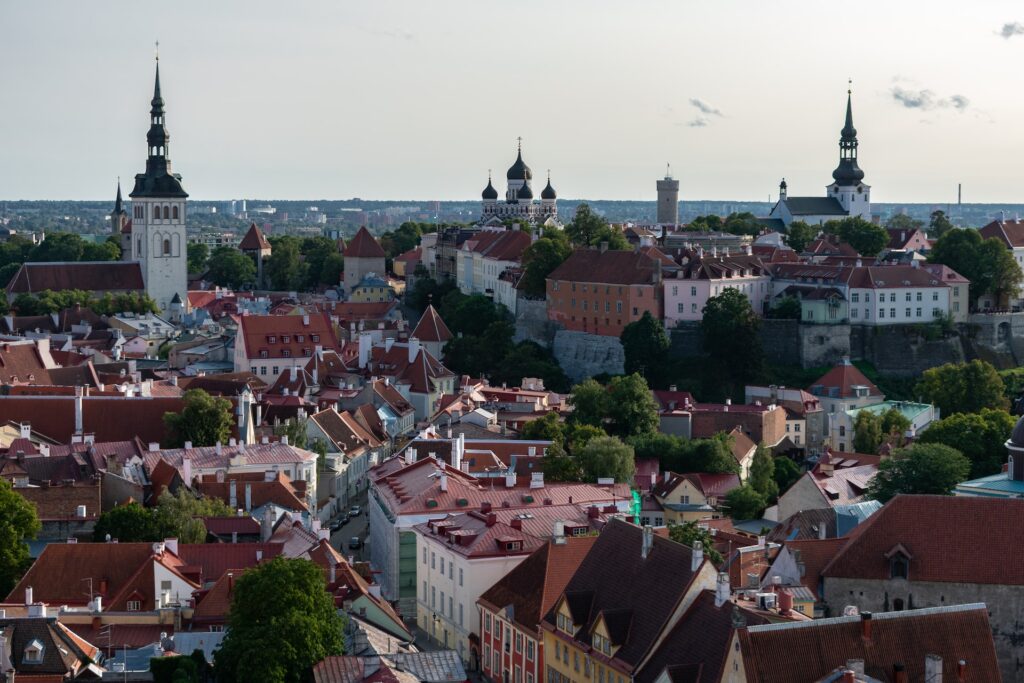
Looking Forward
The Estonian Government will host the 2023 OGP Global Summit on September 6-7, 2023, in Tallinn, Estonia, which will bring together the Heads of State and Government, representatives of civil society and policy makers around the world in the first in-person OGP Global Summit since 2019. Thousands of trailblazers and innovators will meet in Tallinn to discuss how cutting-edge digital governance combined with the open government values of transparency, accountability, and participation can renew democracy and fight back against autocratic threats, particularly in light of Estonia and its neighbors being at the frontlines of authoritarian threats to democracy.
The Summit will focus on key themes of OGP’s new strategy: anti-corruption, digital governance, climate and environment, open justice, and public participation and civic space, and gender and inclusion, as well as other emerging issues, such as national security. Building on Estonia’s reputation as a digital society, it will particularly make us think about open government in the digital age, the potential of technology to make governance and policy-making more transparent, participatory and accountable, and the preservation of democracy as we continue to see threats to civic space and the rise of authoritarianism around the world.
It will also be an important moment for the OGP community to come together to accelerate the implementation of the new strategy. Once the new strategy is launched in May 2023, the first year will be a transition year to move from current programs and ways of working to new ones. The OGP Support Unit looks forward to working with the community to implement the strategy and shift open government into a much broader movement of open government reformers in coming years.
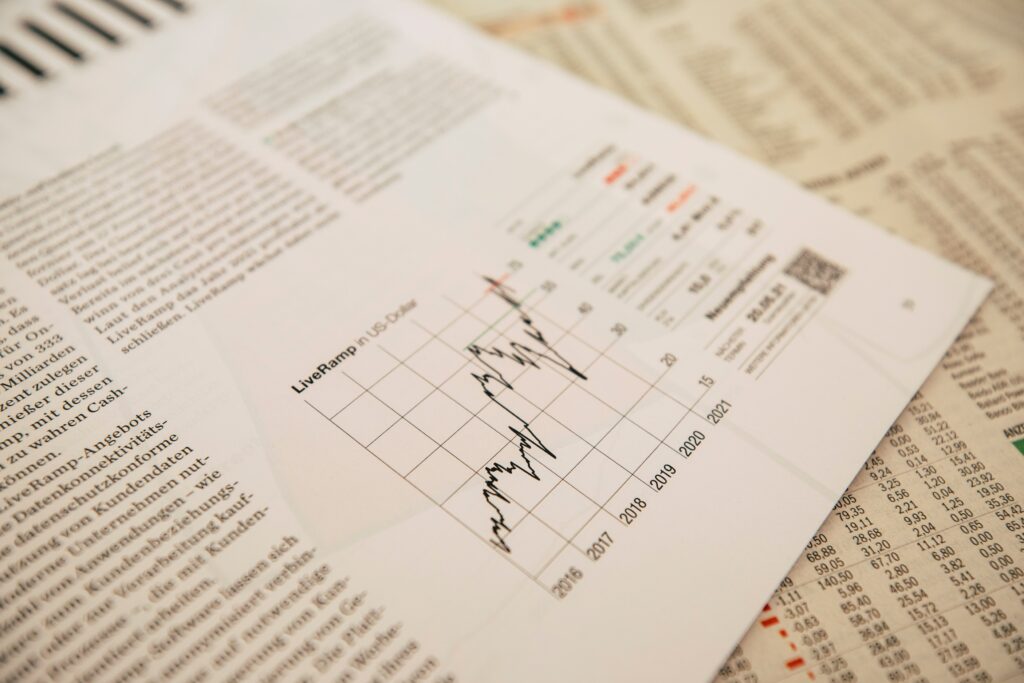
Budget & Finances
All of OGP’s budgets, audit reports, and other financial information are available online. All figures below are in US dollars.
Revenue
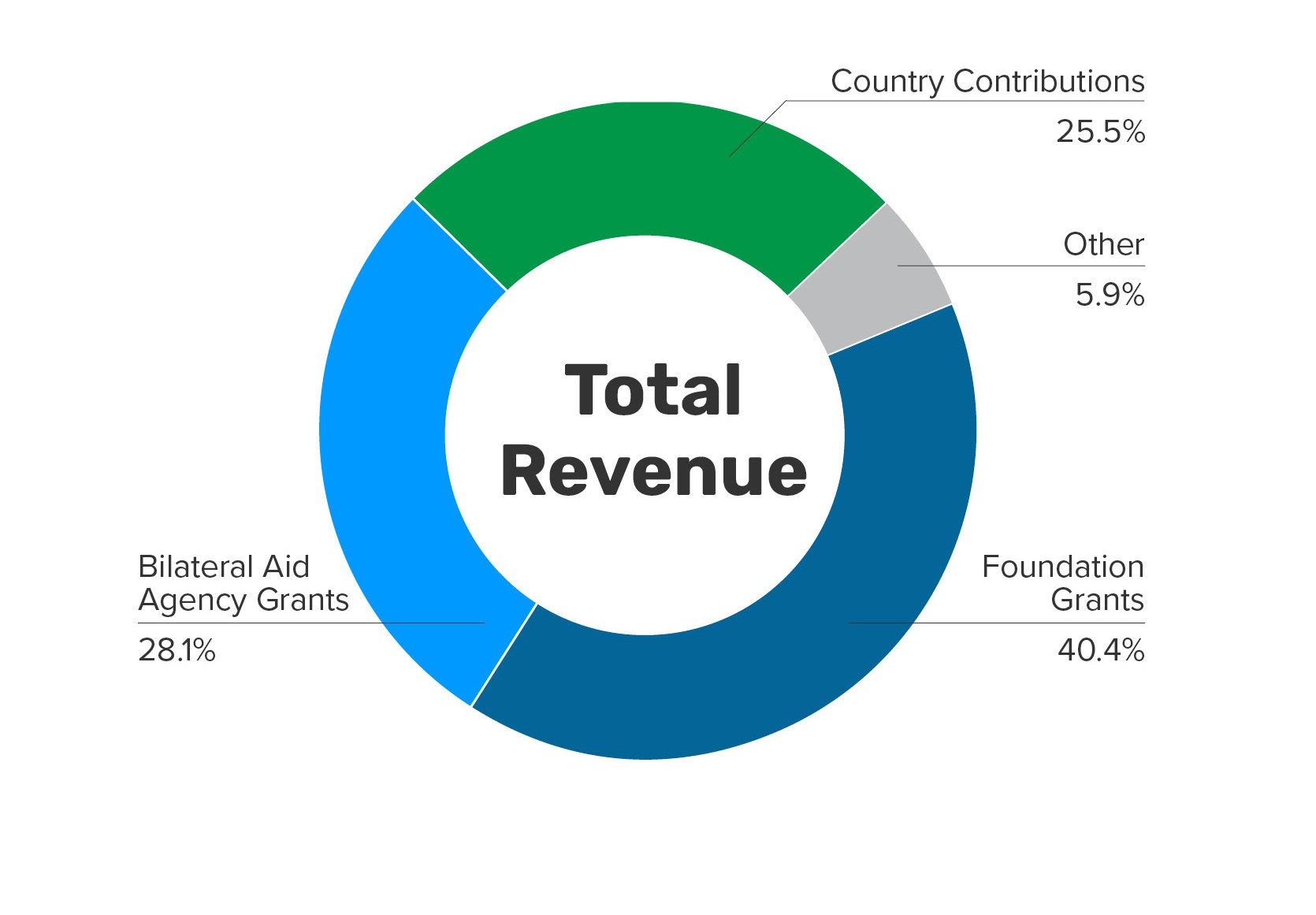
| Revenue | Budget | Actual OGP Secretariat |
|---|---|---|
| Bilateral/Multilateral Grants | $2,996,819 | $2,875,442 |
| Country Contributions | $2,520,000 | $2,609,669 |
| Foundation Grants | $4,243,400 | $4,130,400 |
| Other | $238,000 | $599,812 |
| Total | $9,998,219 | $10,215,323 |
2022 Funders
Bilateral/Multilateral Support
Agence Française de Développement (AFD)
European Commission – Directorate-General for Neighbourhood and Enlargement Negotiations (DG NEAR)
Foreign, Commonwealth and Development Office (FCDO)
International Development Research Center (IDRC)
Swedish International Development Cooperation Agency (Sida)
United States Agency for International Development (USAID)
World Bank
Contributions from 32 national member governments
Foundation Grants
Chandler Foundation
Charles S. Mott Foundation
Ford Foundation
Luminate
Open Society Foundations
Packard Foundation
Trafigura Foundation
William and Flora Hewlett Foundation
Private Sector
Glencore International
Gunvor Group
Expenses
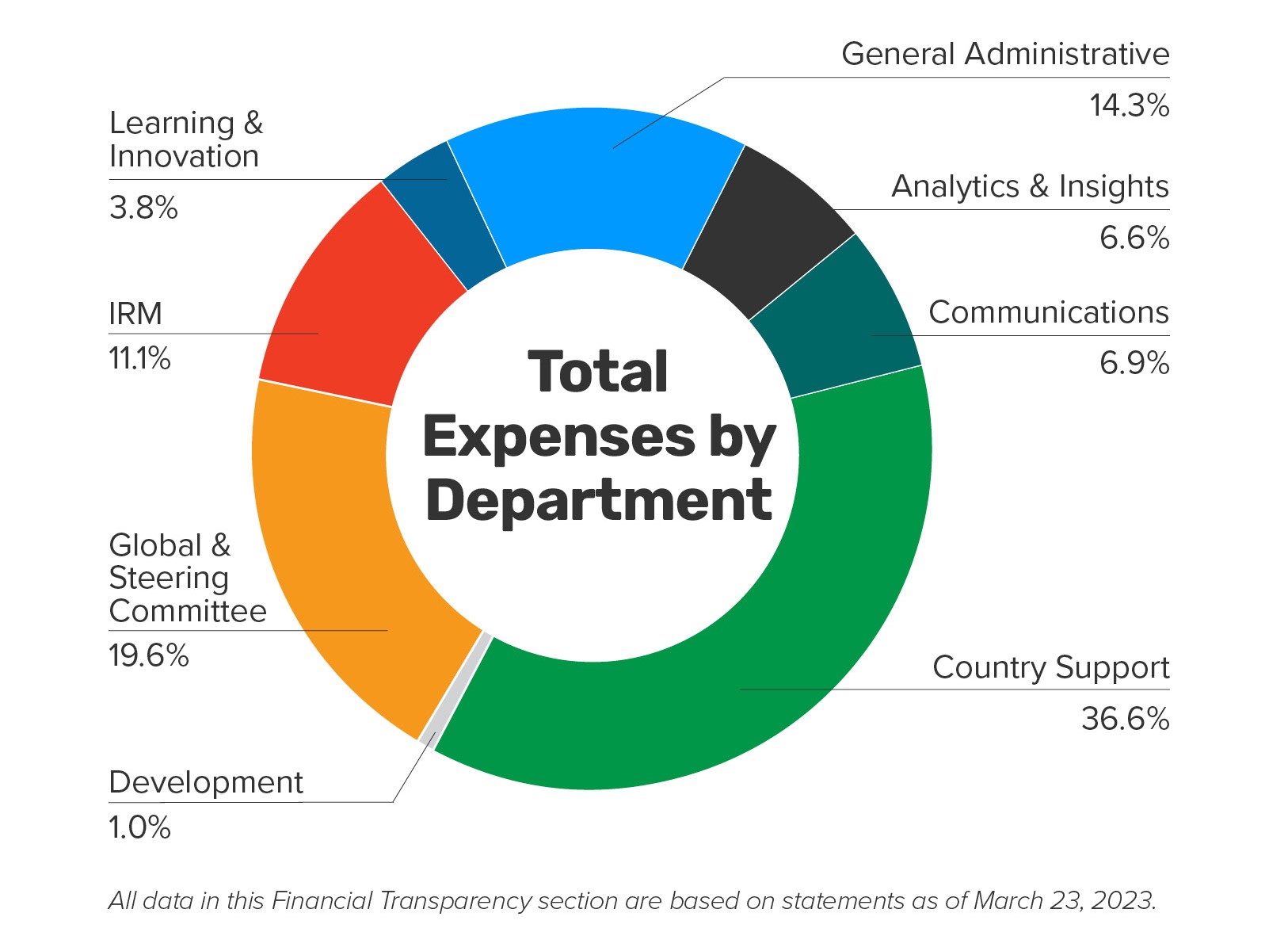
| Expenses by Department | Actual OGP Secretariat |
|---|---|
| Analytics and Insights | $815,408 |
| Communications | $860,198 |
| Country Support | $4,558,962 |
| Development | $129,780 |
| Global and Steering Committee | $2,437,365 |
| IRM | $1,386,526 |
| Learning and innovation | $473,317 |
| General Administrative | $1,782,962 |
| Total | $12,444,518 |
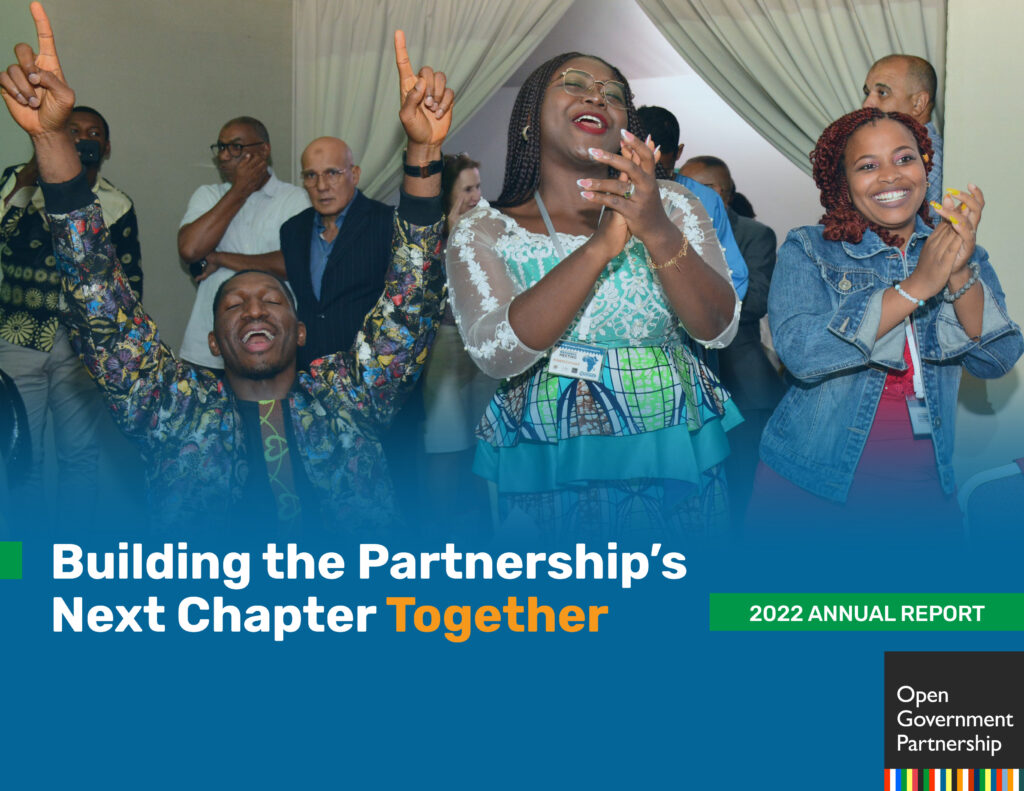
Learn More
Download the complete 2022 Annual Report here.

